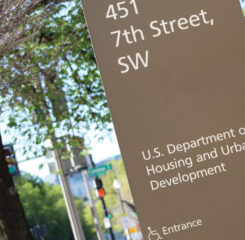CMS is revising the survey process through changes to the State Operations Manual SOM, Appendix M-Guidance to Surveyors: Hospice. A new memo reviews all the changes (Ref: QSO-23-08-HOSPICE). A significant change in the hospice survey protocol is an enhanced approach to investigating the quality of care provided to hospice patients. While each of the 23 Conditions of Participation (CoPs) continues to have equal weight in the final certification decision, special attention is directed to those Phase I CoPs directly impacting patient care. CMS believes that prioritizing Phase I CoPs will increase attention to achieving desired outcomes for patients. Facilitate consistency between state surveyors and accrediting organization surveyors.
Investigative Procedures: There are now eight tasks in the survey protocol, with the addition of a section dedicated to sampling strategy for record reviews and home visits.
- Enhanced Pre-Survey task added to boost surveyors’ understanding of the hospice’s operations and provide a foundation for the onsite survey. Surveyors are directed to public media for potential concerns about the hospice, the hospice’s website, CMS Care Compare-Hospice, and prior survey reports for standard and complaint investigations.
- Entrance Conference (formally Entrance Interview) will no longer prioritize understanding of operations from the hospice administrator. This will become a discussion on more clearly identified items including:
- Informing the administrator or designee of the survey’s purpose.
- Explaining the survey process and the estimated duration.
- Requesting patient and agency information and short-term inpatient care documentation.
- Requesting assistance with a private space to work and access to an assigned staff person from the hospice who will assist with questions and obtaining information.
- (New) Sampling Strategy increases the number of records and ensures that a broader range of hospice activities are investigated (live discharges, bereavement follow-through, care for patients needing higher levels of care) from all of the locations where the hospice operates (‘multiple locations’), and the variety of home settings where patients live. LeadingAge advocated for looking at factors like bereavement care, offering multiple levels of care, and live discharges so we are pleased to see CMS expand the scope of surveyors to include these items.
- Information Gathering Task is divided into two phases.
- Phase I identifies CoPs that contribute to understanding the quality of care delivered directly to patients, their caregivers, and families. (Including §418.52 Patient Rights, §418.54 Initial and comprehensive assessment of the patient, and §418.56 Interdisciplinary Group, care planning, and coordination of services.)
- Phase II identifies CoPs that, while still integral to the survey process, focus more on the administrative functions and operations of hospice services. (Including §418.58 Quality assessment and performance improvement (QAPI) and seven associated quality of care CoPs.)
- The new guidance differentiates information-gathering priorities to focus on CoPs that directly effect patient care. The number of probes presented in task guidance has been reduced and is more focused by category.
- Guidelines have also been added for reviewing the hospice’s quality of bereavement counseling and services and specific inpatient hospice survey procedures.
- Preliminary Decision Making and Analysis of Findings has added guidance on Standard vs. Condition-level noncompliance.
- Exit Conference guidance was updated to clarify that surveyors should:
- Not refer to tag numbers when referring to survey findings
- Give specific regulatory citation references
- Not need to provide instructions or timeframe for the hospice to submit a Plan of Correction.
- Formation of Statement of Deficiencies does not have any updates
CMS also stated that surveyors who have previously taken the CMS Hospice Basic Surveyor Training will take an abbreviated training that explains the new approach, while all surveyors (State Agencies and Accrediting Organizations) who have not taken an earlier version of the CMS Hospice Basic Surveyor Training will take the full revised training. LeadingAge will continue to analyze the new surveyor guidance and share updates with members.

 Shutdown Week Three: Impact of Ongoing Closure on Affordable Housing
Shutdown Week Three: Impact of Ongoing Closure on Affordable Housing HUD Streamlines Section 202 PRAC Budget Approvals
HUD Streamlines Section 202 PRAC Budget Approvals


